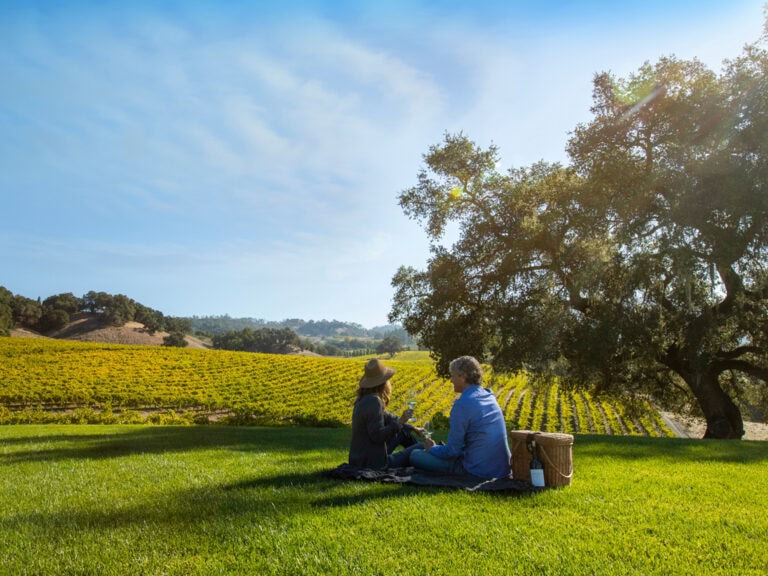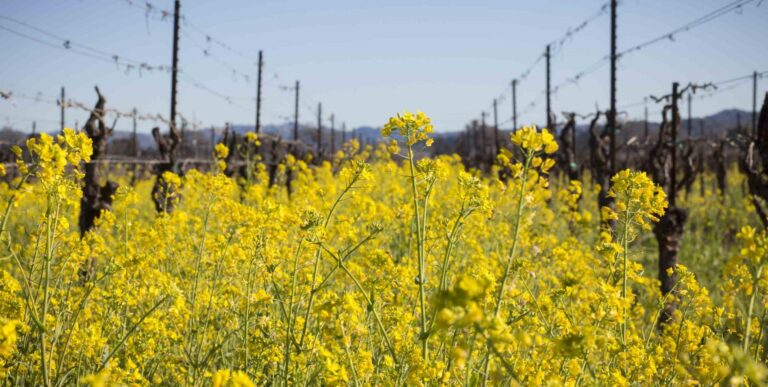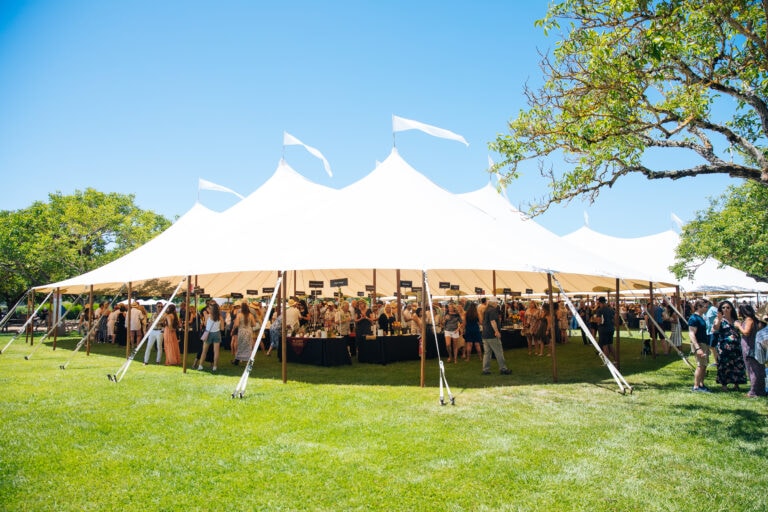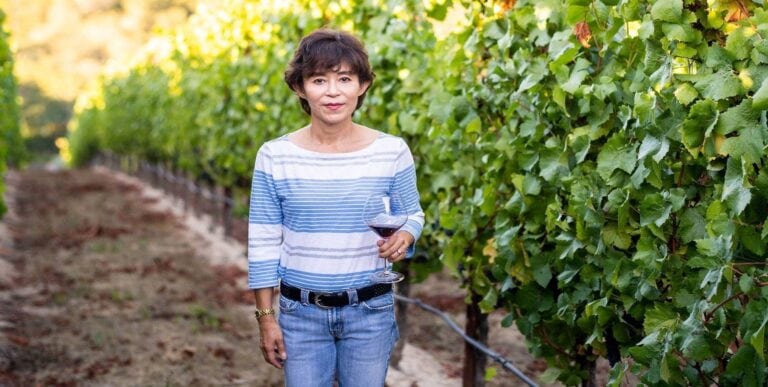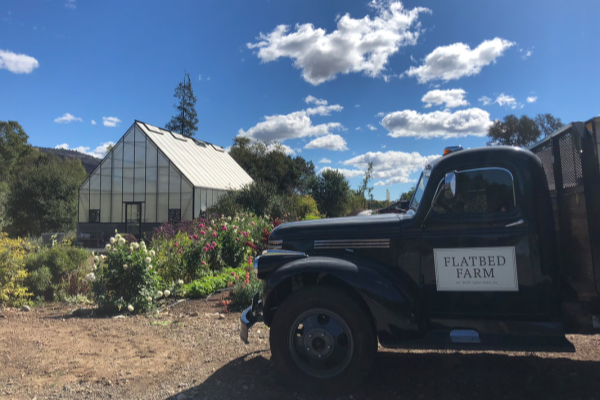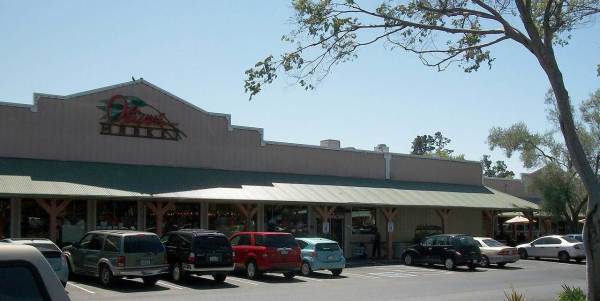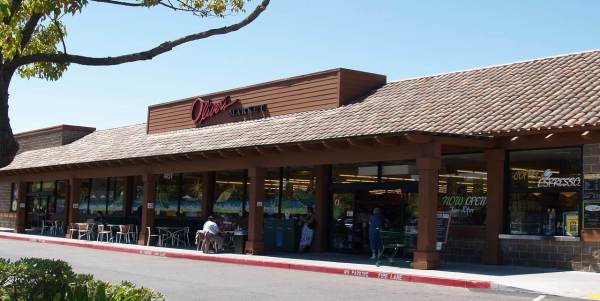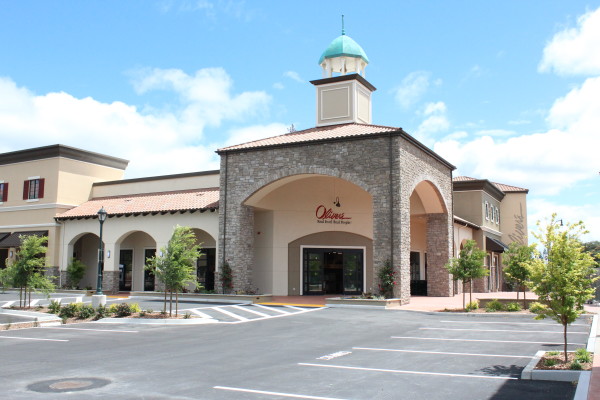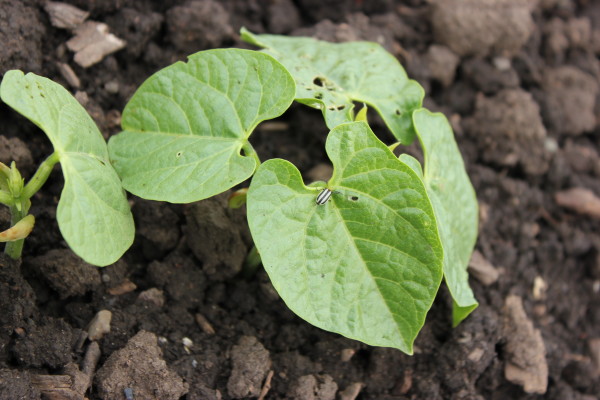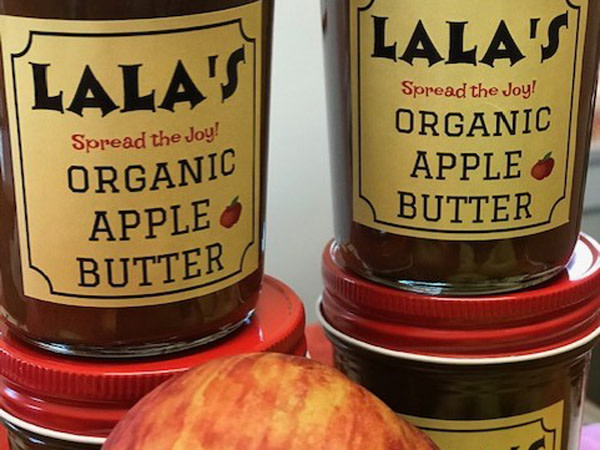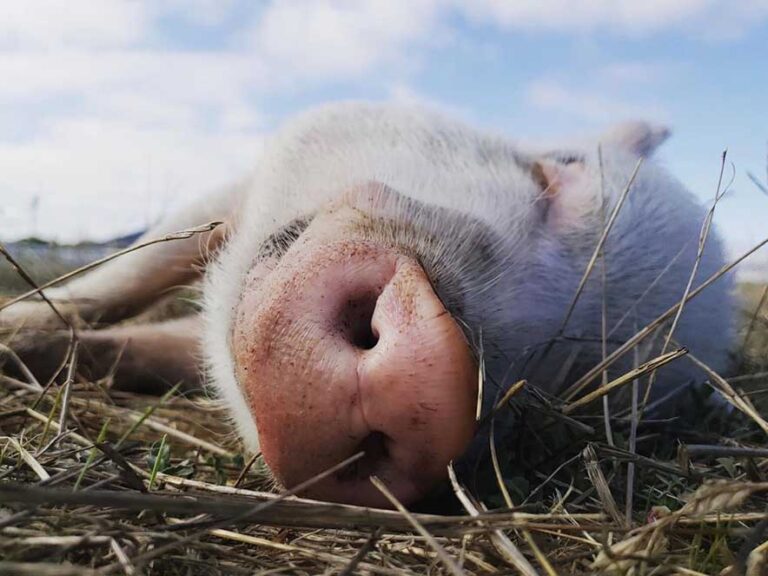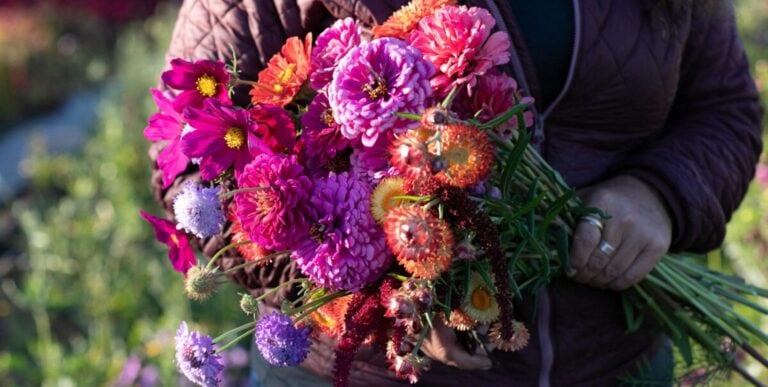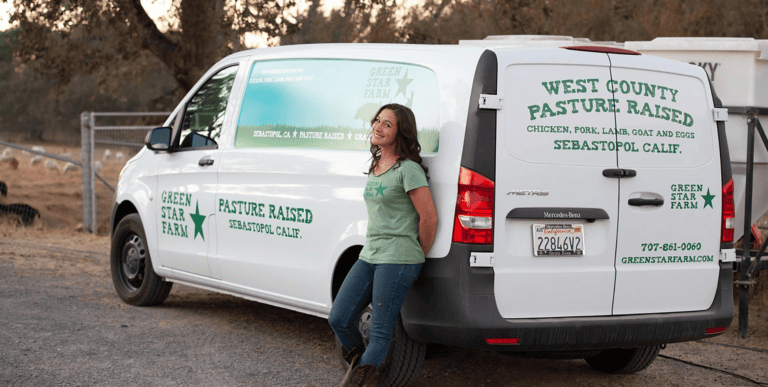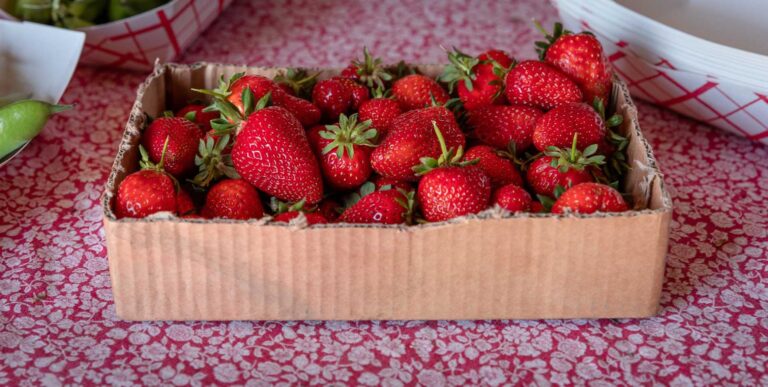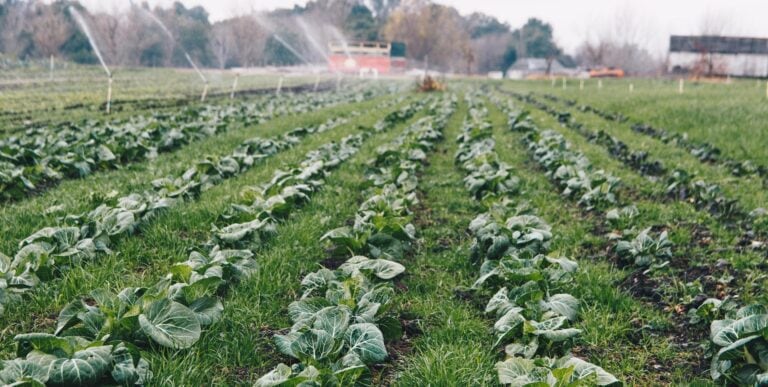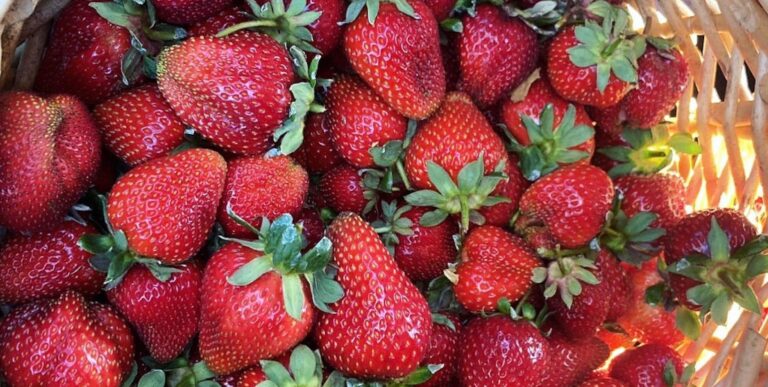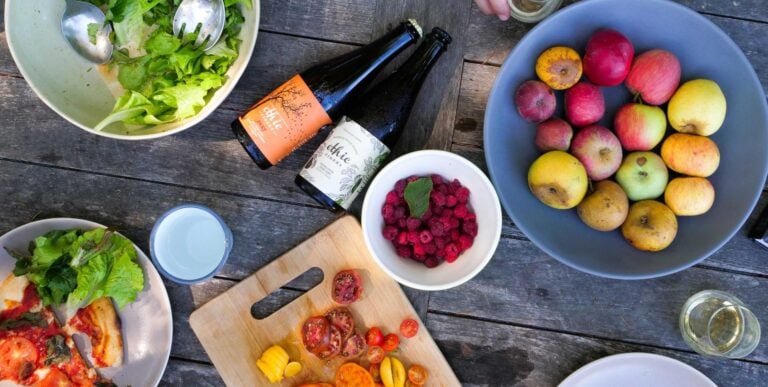Savor the Season with Locally-Made Jams, Pickles and Chutneys
As summer ushers in autumn, we begin to miss our warm-weather berries, peaches, and plums. But that’s why preserving the goodness of harvest has long been a way of life in Sonoma County. We pickle and can our garden veggies, mill grains into flour, and even freeze herbs and citrus juices to enjoy year-round.
“I’ve absolutely seen a rise in people canning preserves,” says Amie Pfeifer, who makes jams, shrubs, pickles and more at Glen Ellen’s Flatbed Farm. “It was super-evident last summer, as you couldn’t find a Ball or Mason jar for miles. I also had more people coming and asking me questions about beginning canning or telling me about their own canning experiences.”

Besides pampering our palates with the brightest, freshest flavors, canning and pickling helps protect the earth. “Preserving is a fantastic way to eat foods out of season,” says Veva Edelson of Piano Farm, a boutique operation in Bloomfield, where she and husband Karel Sidorjak turn a cornucopia of produce into jam, polenta, and cider. “It is way more sustainable than shipping produce long distances so we can have whatever we want whenever we want it.”
Five years ago, Tanya Seibold of Fourteen Magpies started making jams as gifts for friends and family with fruit from the heirloom orchard on the 1915 farm she inherited from family in southwest Santa Rosa. The riches hung heavy on the branches: 50-year-old quince and Spitzenburg apples; figs; and over a dozen different plums, including rare French prunes and several wild varieties she still hasn’t identified. “My desire to craft a collection of jams and preserves came from seeing beautiful fruit drop with nowhere to go,” says Seibold. “We’re so fortunate in Sonoma County to have an unending bounty of produce — I didn’t want it to go to waste.”

Seibold’s low-sugar, micro-batch jams in hand-numbered jars were an instant hit, with their bold, perfectly balanced sweet-tart flavors. The crowning touch: kisses of vanilla bean and a puckery finish of lemon. “We use an all-natural, vegan, low-sugar pectin, and a ratio of approximately one cup of pure cane sugar to one pound of fruit,” she says. “Most commercial jams are two cups of sugar per pound. Way too sweet! I believe the true flavor of the fruit should shine through in every bite.”
Last year, Seibold invested in a pricey French copper jam pot, secured a cottage food industry permit from the county, and opened her boutique business for sales online and at local festivals. “I covet my jam pot,” she says. “It was a splurge, but so worth it. Copper’s heat-conductivity can’t be beat, and the wide, shallow design allows the fruit to heat up quickly and evenly. The shorter it takes the jam to cook, the more flavorful it is.”
To be sure, these are treasures you’ll want to slather on pastries and scones. But Seibold says they also pair beautifully with charcuterie, cheese, and grilled meats. “And try adding them to a craft cocktail in place of simple syrup, for a burst of brilliant fruit flavor.”

It’s difficult to believe how much goodness is coaxed from the 3-acre Piano Farm in the west county hamlet of Bloomfield. Owners Veva Edelson and Karel Sidorjak craft gourmet, tiny-batch products like boysenberry-lemon verbena, strawberry-red currant, and tomato-plum-rosemary jams; nutty rich Floriani corn polenta; Sonoma Coast sea salt flavored with their own herbs; and a zingy fire cider of live-culture apple cider vinegar spiked with horseradish, onion, garlic, ginger, thyme and rosemary.
Everything except the salt comes from the couple’s organic farm. And they handcraft it all, from grinding the corn using a bicycle-powered mill, to drying anise hyssop, mullein, tarragon, marigold, and rosemary in their sun-house to make their Lung Love Tea. “We consider ourselves to be artists and climate change activists,” explains Edelson. “We have a deep connection with food and believe that the landscapes we live in are shaped by the choices we make.”
A burbling pot of jam shown on Instagram hints of the farmstead approach for tart strawberry-rhubarb-rose jam and plum preserves fragrant with the cinnamon- basil notes of red shiso. Spicy mustard is another time-consuming craft, starting with horseradish that’s preserved in apple cider vinegar. The mustard blooms for a week before it’s blended with the horseradish, then the mix rests for a while to mellow its sharp, sinus-tingling thrill.
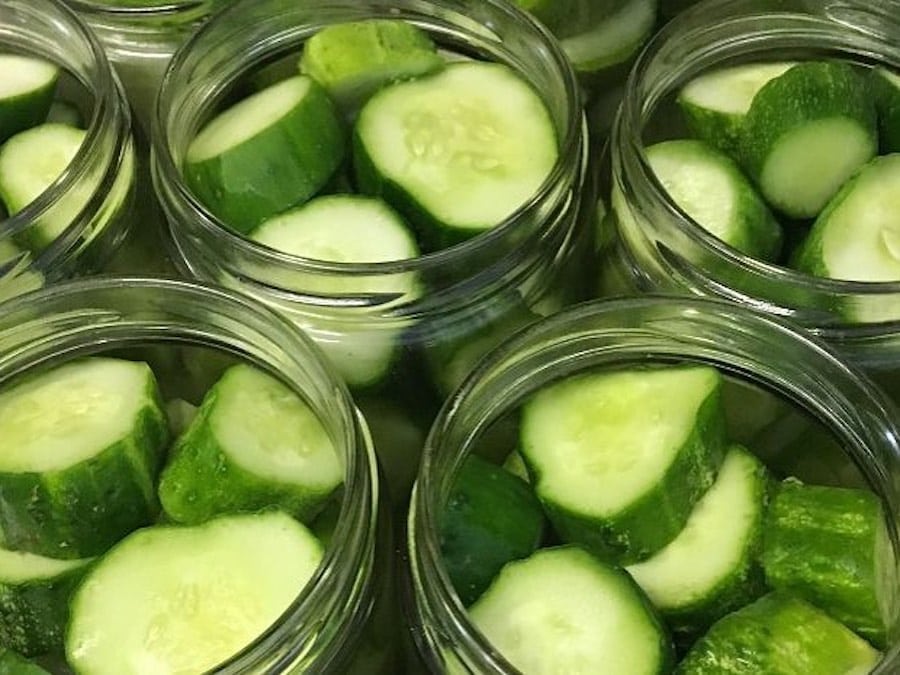
At Glen Ellen’s bucolic Flatbed Farm, monthly classes led by manager Amie Pfeifer explore all different avenues for preserving seasonal harvests, including answering questions like the difference between jam, marmalade, and fruit butter. “Berries and soft fruits that are cooked down whole become jams,” she says.
“Marmalades are specifically citrus, and butter comes from pureed fruit that you cook low and slow until it becomes thick and darkens in color.”
Certainly, you can buy the delicious finished products at their farmstand year-round, but Pfeifer encourages people to try their own hand at canning, too, from vegetables and fruits they grow at home or farmers market purchases they may have left on the counter just a little too long. “Preserving is the best way to utilize imperfect produce,” she says. “At Flatbed, whenever we have anything that is overripe, has been slightly damaged in the harvesting or maybe has a bite taken out by a critter, it goes into the ‘Amie Bin.’ I turn it into something, whether it’s jams, spreads, pickles, shrubs, or dried snacks. We do our absolute best not to waste anything.”

Jesus Velasquez and Patricia Greer’s small family farm, Waterhorse Ridge, nestles above a fog-blanketed valley on a remote Cazadero ridgetop, where the couple has been living off-grid for 25 years. That means they can be hard to reach (“We have ridiculously spotty internet up here,” Greer says with a laugh), and their website can be hit or miss.
But it’s worth hunting them down for delicacies like their organic, orchard-harvested Seven Citrus Marmalade; Triple Berry and Apricot Vanilla Cointreau jams; spiced plum chutney; and salsas. Velasquez and Greer’s signature is working with more unusual produce like Luther Burbank thornless blackberries, sweet lemons, Rangpur limes, and Thai Dragon chile peppers, which will go into a Cherry Dragon salsa later this year.
Locally, Oliver’s Market carries Waterhorse Ridge products, including the Triple Noir preserves, a “crazy blend” of blackberry, mulberry, estate grapes, and chocolate. Emily O’Conor, who oversees Oliver’s gourmet cheese selections, recommends their apricot preserves with a rich triple-cream brie, or the plum chutney with blue cheese. Waterhorse Ridge batches are tiny: just seven cases at a time, 12 jars to a case. And as with the best of all farm-grown products, availability is seasonal, says Greer, “and subject to the whims of nature.”

All Things Jam
Tierra Vegetables: Harvest bounty at this landmark Santa Rosa farmstand comes pickled, frozen, dehydrated, smoked, canned, bottled, and milled. Don’t Miss: Colorful popping corn such as Dakota Black, Ruby Red, and Shaman Blue. Also excellent hot sauces and stoneground polenta. 651 Airport Blvd., Santa Rosa. 707-544-6141, tierravegetables.com
Fourteen Magpies Homemade Jams & Preserves: Tanya Seibold makes delicious micro-batches of Bartlett pear-ginger jam, Gravenstein apple jelly, quince paste and more. Don’t Miss: Comparing versions of her wild plum jam from orchards just a few feet apart— one rosier in color and tasting of spiced apricot; the other a deep, inky purple. Order at fourteenmagpies.com
Lala’s Jam Bar and Urban Farmstand: Jam-making classes are a highlight at this popular shop, held Sunday mornings. Sign up for Sunday Jammin’ ($55 per person); or Family Jam ($99 per family). Don’t Miss: The Petaluma Fog, with figs, orange juice, and ginger, and wonderful mild and hot versions of Lala’s organic pepper jelly. Open Thurs-Mon, 10 a.m.- 5 p.m. 720 E. Washington Street, Petaluma. 707-773-1083, lalasjams.com
Piano Farm: At Veva Edelson and Karel Sidorjak’s organic farm in Bloomfield, everything is made by hand including apple cider vinegar produced with an apple press they received as a wedding present. Don’t Miss: Tomato-plum-rosemary jam, zingy Fire Cider, and stoneground Floriani polenta. Order at pianofarm.org
Waterhorse Ridge: Oliver’s Markets carry the creative combinations put forth by Jesus Velasquez and Patricia Greer from their small farm in Cazadero. Don’t Miss: Triple Noir preserves, with grapes, berries, and chocolate, or the Creative Buzz tea, a flurry of peppermint, rhodiola, yerba mate, berries, and more. Order at waterhorseridge.com
Flatbed Farm: Pickles, flavored sugars, preserves, and all kinds of other harvest goodness come from the kitchen at this bucolic Sonoma Valley farmstand. Register in advance for “Preserving the Season: Shrubs and Jams” class on October 17, $125 per person. Don’t Miss: Delicious apricot jam and pomegranate shrubs. Open Saturdays 9 a.m.- 3 p.m. 13450 Highway 12, Glen Ellen. flatbedfarm.com
This Is Wine Country.
Share your experience using #SonomaCounty or #LifeOpensUp
